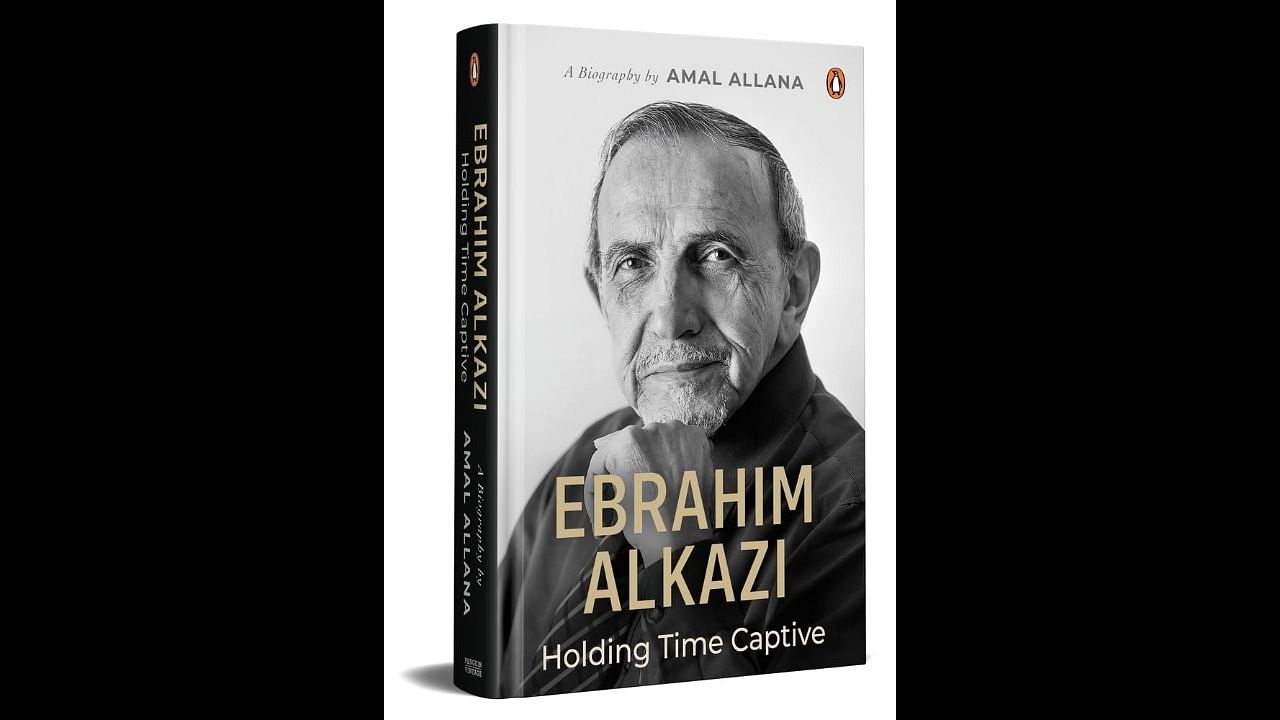
Holding Time Captive
‘Ebrahim Alkazi is one of those stalwarts whom everybody knows about but hardly anyone gets to meet him in person — at least not in this generation — and you are not likely to either.’ This was the answer I got when I first broached about an interview possibility with the giant of Indian theatre to my editor many years ago. In subsequent years, when Alkazi’s daughter, theatre director Amal Allana became the chairperson of the National School of Drama (2005-2013), I risked asking her as well about a possible interaction. With a sweet smile, she shared that Alkazi did not give interviews and the subject was buried forever.
All these years, the elusive Ebrahim Alkazi interview remained a matter of rancour, the only consolation being that none in my generation got that opportunity either. Alkazi’s presumed and steadfast refusal to be interviewed has resulted in a rather shocking paucity of material on him on the Internet, which, one must admit, has only deepened the aura around him.
The recent release of his biography, Ebrahim Alkazi: Holding Time Captive, written by his daughter, came as a relief because right at the beginning of the book, Allana touches upon the topic of ‘insufficient material on his life and work, not at all worthy of a polymath of his stature…’ She goes on to explain: ‘Insistent on exactitude, he was known to dissuade the press and even scholars from interviewing him, as he felt they were not sufficiently conversant with the range of his work to engage in a meaningful dialogue with him.’
So, here we have, the most authoritative account of a legendary life, from his daughter, who gives the best possible view that can be had of situations, people and plays that fashioned the man called Ebrahim Alkazi (1925-2020).
The most endearing aspect of the book is its novel-like quality. Allana painstakingly creates the life story of young Ebrahim, cycling, running, reading and doing a whole lot of things in what was then Poona; the book opens with this boy stealing away from home on an afternoon to get his copies of JRR Tolkien’s The Hobbit and John Steinbeck’s The Grapes of Wrath. She paints a lively picture of the household of Hamed and Mariam Alkazi in Poona, with their children of whom Ebrahim was the second eldest. In doing so, she elegantly throws light on the life of Arab expatriates in Bombay, including Alkazi’s father Hamed who came to Bombay-Poona via Calcutta, all the way from Nejd in Saudi Arabia, to escape poverty, much before the fortunes of the region were upended with the discovery of oil. Alkazi, however, was born in India, and jokingly called himself a ‘Maharashtrian Arab’.
This ‘Maharashtrian Arab’ did a spectacular job with theatre in Bombay, of which Allana gives breathtaking details across several chapters; this was also the period when he fell in love with and later married a theatre buff from a well-known family, Roshen Padamsee. It seems like an obvious corollary that he was wooed by authorities to take up the directorship of the newly instituted National School of Drama in New Delhi, which seemed to be going nowhere. That’s when the iconic theatre director and actor — with a cosmopolitan and Western education — scripted history for Hindi, as well as national theatre, with his legendary stewardship of NSD, from 1962 to 1977.
In Delhi, Alkazi had a monumental task on his hands — not only did he have to “confront an already atrophying institution”, but he also had to work on making Hindi a serious language for theatre. How he set about to establish his credentials in Hindi theatre by choosing the works of the most experimental and celebrated of the Hindi New Wave, or Nai Kahani movement — Mohan Rakesh and Dharamvir Bharati — makes for a racy, riveting read. His productions of Rakesh’s Aashad Ka Ek Din (1962), Bharati’s Andha Yug (1974), and Girish Karnad’s Tughlaq (1974), among others, remain iconic, and big boots to fill for directors of subsequent generations.
The book’s achievement lies not just in giving a thorough-going picture of the theatre great that Alkazi was, but also in throwing equal light on lesser-known aspects of his personality, such as how, after quitting NSD, he devoted himself full-time to the visual arts by establishing the Art Heritage gallery at the Triveni Kala Sangam; his friendships with the greats of Indian modern art such as Tyeb Mehta, F N Souza, M F Husain as with poet and playwright Nissim Ezekiel; his life as an NRI in later years, and so much more. Allana has dealt with all aspects of her father’s life with great honesty, including his relationship outside of marriage, around the time he shifted to Delhi, and the long-lasting impact it had on her mother. The multifaceted individual that he was, Ebrahim Alkazi’s life history indeed deserved an encyclopaedic biography such as this one — it will certainly go a long way in filling the huge gap in publicly available information about his contributions to the country’s cultural heritage and creating a wholesome picture of an icon.